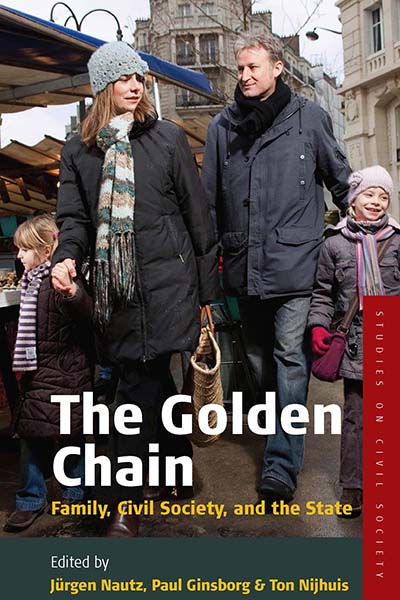
Series
Volume 10
Studies on Civil Society
Email Newsletters
Sign up for our email newsletters to get customized updates on new Berghahn publications.
Europeanization in Sweden
Opportunities and Challenges for Civil Society Organizations
Edited by Anna Meeuwisse and Roberto Scaramuzzino
Full Text PDF | Full Text ePUB Made available under a CC BY-NC-ND 4. license with support from University of Lund.
312 pages, 34 illus., bibliog., index
ISBN 978-1-78920-034-8 $135.00/£104.00 / Hb / Published (December 2018)
ISBN 978-1-80073-741-9 $19.95/£15.95 / Pb / Published (February 2023)
Reviews
“The close professional and working connections the team members enjoy is very obvious from the outset, thus resulting in a certain unity of substance and coherence of style not always found in edited volumes of this kind.” • Journal of the International Society for Third-Sector Research
“Europeanization in Sweden is a solid piece of work that is a worthy contribution to the field. This book is essential for anyone studying civil society in the EU or Sweden.” • Jean L. Cohen, Columbia University
“This volume offers significant findings on Swedish civil society in the European context, and makes thus a relevant contribution to our understanding of the role of civil society in the EU more broadly.” • Eva G. Heidbreder, Otto von Guericke University Magdeburg
Description
Notwithstanding its many successes since 1945, the project of European integration currently faces major difficulties, from financial crises and mass immigration to the departure of the UK from the European Union. At the same time, these challenges have spurred civil society organizations within and across Europe, revealing a shared public sphere in which citizens can mobilize around refugee rights, opposition to austerity policies, and other issues. Europeanization in Sweden assembles new empirical research on how these processes have played out in one of the continent’s wealthiest nations, providing insights into whether, and how, the “Swedish model” can guide European integration.
Anna Meeuwisse is professor of social work at Lund University, Sweden. One of her research areas concerns the changing roles of civil society organizations in the welfare state. She has been engaged in several research projects regarding civil society, advocacy, and transnational social movements in the health- and welfare area.
Roberto Scaramuzzino is Associate Professor at Lund University, Sweden. His research interests include changes in the welfare and integration systems and the role of civil society organizations in different countries. He has been engaged in comparative studies of mobilization in the migration and prostitution policy fields in Sweden, and Italy, and at the EU-level. He is currently working in a research program on civil society elites in Europe.
Subject: SociologyPolitical and Economic Anthropology
Area: Northern Europe
Europeanization in Sweden Edited by Anna Meeuwisse and Roberto Scaramuzzino is available open access under a Creative Commons Attribution-NonCommercial-NoDerivatives 4.0 International License (CC BY-NC-ND 4.0) with support from University of Lund.
Full Text PDF | Full Text ePUB
OA ISBN: 978-1-78920-983-9
Contents
Download ToC (PDF)




